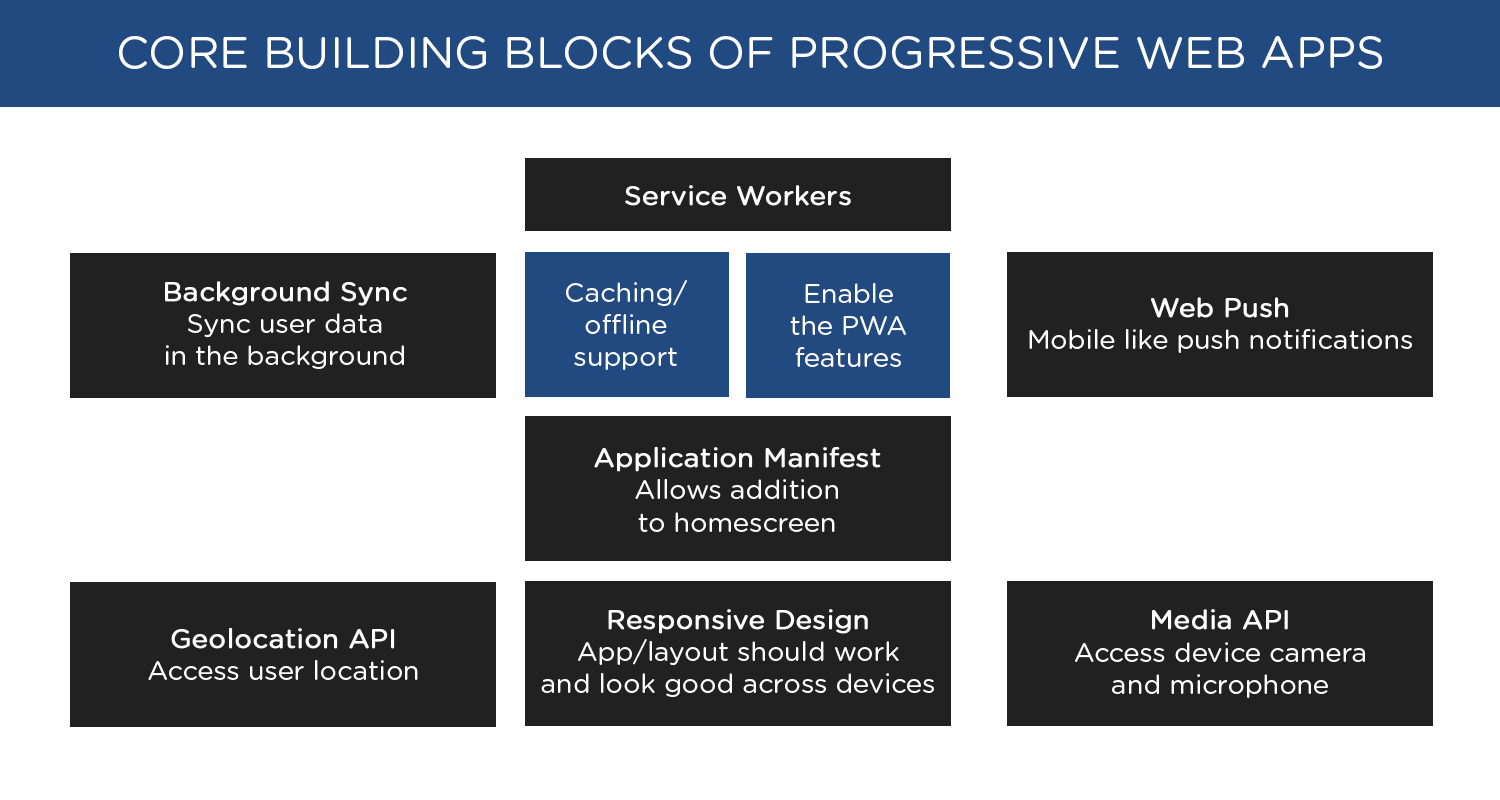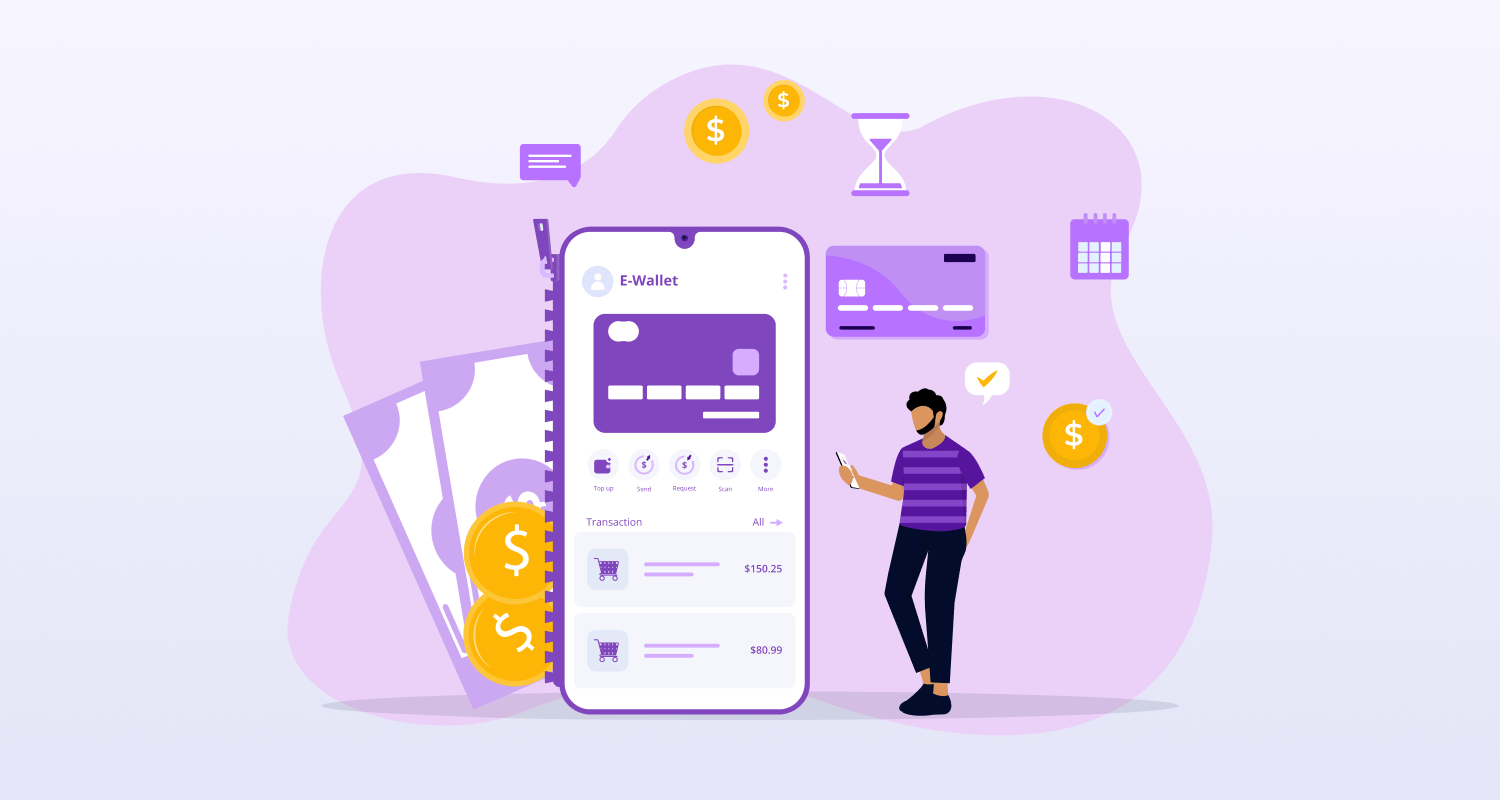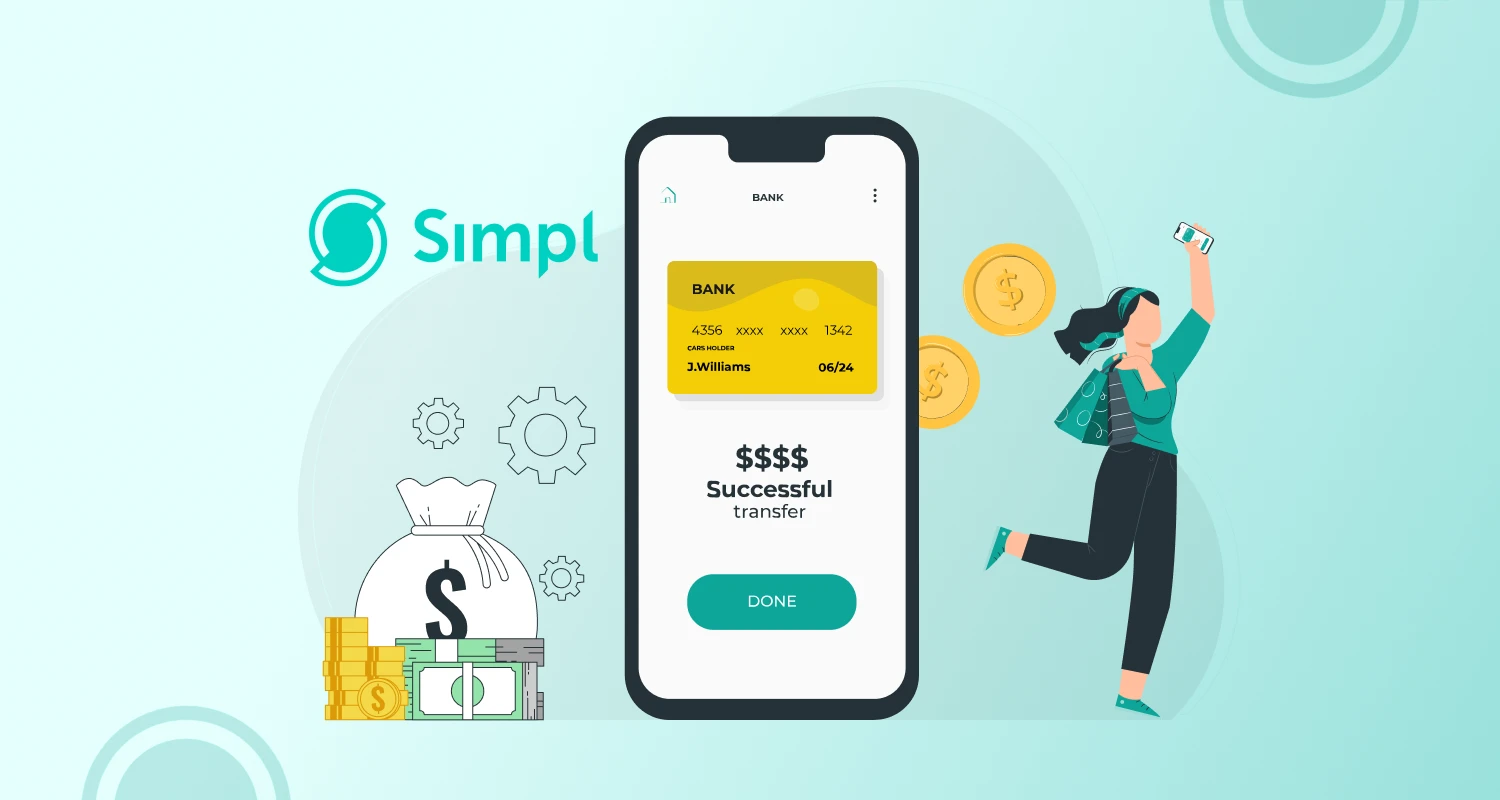There is no doubt in the fact that for every organization, performance is given supreme importance and naturally when it comes to the digital footprints, they need to ensure faster loading speed and glitch-free performance. This is precisely why companies across the niches are embracing new technology for their websites. Yes, you have guessed it right. We are referring to the Progressive Web Apps ( PWA). Created and supported by Google and championed by the web app developers worldwide PWA has come with a gamut of promises for business organizations.
Before exemplifying with some of the most notable and successful progressive web apps, let us describe the key attributes of PWAs and how they add value to the user experience.
PWA: Bolstering Usability and Performance
Progressive Web Apps are not so-called responsive or mobile websites and they are also not native apps. They tend to engage the audience with superb and high-performance user experience simply by bringing together the power of the web and the native functionality. The graph here clears the fact that mobile users access web more than that of apps and spend more time with apps in comparison to mobile web pages.
PWAs bring together both the usability and the accessibility together for better user experience.

While native apps are great for easy access to contents befitting to the mobile device, the web apps are preferred for their dynamic capability to deliver contents from the web. Progressive web apps at the same time offer the ease of access and quick loading time of the native apps and deliver contents from the web server. No wonder, PWA hybrid apps development became so popular a category of service for mobile and web development companies of all sizes.
What is PWA?
Progressive Web Apps can be best described as the website with the features and functionalities of a mobile app. Progressive Web Apps are basically lean websites that utilize API to deliver mobile-app like user interface and progressive lazy loading to help to load the contents faster. If you think a mobile app development company India will be on the Blackfoot because of the PWA, you just missed the opportunity of building lightweight hybrid apps this new technology offer.
Let us have a look at the key characteristics of progressive web apps.
- PWAs are compatible with any type of browser.
- PWAs are tremendously responsive and can fit any screen irrespective of the device types.
- PWAs allows users working with or using the app irrespective of the network condition.
- PWAs load almost instantly as it uses lazy loading technique to load the first batch of content immediately while other contents continue to load at the backdrop.
- PWAs offer great navigation and menu options that are almost felt like the ones found in native apps.
- Without downloading the app they can be accessed instantly over a browser.
- It also supports sending push notification messages just like the native apps.
- PWAs are extremely lightweight and consume very less amount of network bandwidth and data.
Let us now showcase some of the leading examples of Progressive Web Apps from representing leading brands.
1. Flipkart Lite
Flipkart Lite is the latest PWA version of the well-known ecommerce brand Flipkart. Flipkart Lite by leveraging the open web APIs offer a crisp, lean and lightweight native app like web interface that makes browsing products and shopping a rewarding experience. In spite of being lightweight and lean, this lite version carries all the popular characteristics Flipkart is known for.
Compared to the native regular app of the brand this lite version consumes at least 3 times less data. It also offers much faster and almost instantaneous loading time irrespective of the network quality. Ever since this version has been launched the new Flipkart Lite delivered more than 70% increase in the sales conversion.
2. Starbucks
According to many experts Starbucks should be regarded as the best progressive web app of last year. With this app, the global coffee chain brand actually revolutionised the ordering process for the customers. The all new Starbucks PWA gives its customers access to the menu, facility to customise the orders and add items irrespective of the network condition or access to the internet connection. Customers can see the location-based pricing of the Starbucks offer right on the app screen when ordering. According to Starbucks, it experienced more than a 99% increase in sales since this app was launched.
3. MakeMyTrip
MakeMyTrip is a popular travel booking website with a great following and consistent traffic for its variety of booking services. As mobile continued to remain popular for its users, the company last year launched a fresh PWA capable to deliver the fresh and reliable user experience. According to the company, the new PWA helped to increase the page loading speed significantly that resulted in a sharp boost in business conversion as well.
4. Uber
Uber as the pioneer among ride-sharing apps needs no introduction. The company to deliver its customer a further boost in terms of mobile user experience came up with the idea of launching a crisp and lean PWA. The Uber PWA can now be utilised by the users to book car even when the network condition is not up to the mark. Apart from that the app because of its lean size is just loaded in less than 3 seconds.
5. AliExpress
AliExpress, the progressive web app version of the renowned Chinese e-commerce venture Alibaba was launched with the objective of allowing non-app users to interact with the ecommerce platform and shop products. When their regular website failed to deliver engaging user experience, the new lean and fast loading PWA gave them expected results within a month of the launch. AliExpress experienced awesome output since they launched the PWA version and secured a 104% enhancement in business conversions, double page visits per session and a 74% increase in session duration per user.
6. Twitter Lite
The microblogging and social news sharing platform Twitter in spite of their increasing and phenomenal popularity finally embraced the idea of progressive web app and launched new Twitter Lite. Twitter decided to launch this version particularly for its 80% mobile users among whom a significant portion are not app users. Twitter Lite significantly helped the platform to engage non-app users over browsers.
Conclusion
Progressive Web Apps have become so popular and acclaimed across businesses and organisations that there are hundreds of well-known apps of this sort that deserve an introduction here. But we only decided to explain the key advantages of progressive web apps and how they benefited various apps to boost engagement and business conversion.








